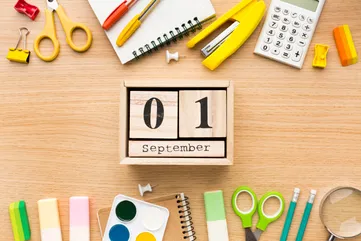Accountability Partner
An accountability partner provides regular check-ins and supportive pressure to help someone follow through on goals, creating external motivation when internal drive wavers.
Why lack of accountability can be a problem
Teens often have good intentions but struggle with follow-through, especially for long-term goals or daily habits that don't have immediate consequences.
Without accountability:
• Goals remain wishes rather than achievements
• Good intentions fade after initial enthusiasm
• Small skips become complete abandonment
• Progress happens in spurts rather than consistently
• Teens develop patterns of starting but not finishing
• Self-trust erodes with repeated failed attempts
External accountability provides the structure many teens need while their prefrontal cortex continues developing self-regulation skills.
You're not alone
If your teen makes ambitious plans but rarely follows through, or starts strong then fizzles out, they need accountability support. The teenage brain struggles with long-term thinking and delayed gratification. Having someone to answer to bridges the gap between intention and action while these skills develop.
What it looks like day to day
Student
Your teen enthusiastically commits to practicing guitar daily, does it for three days, then the guitar gathers dust for months.
Parent
You remind, nag, and plead about commitments, feeling like the only reason anything gets done, exhausted from being the sole accountability source.
Tiny steps to try
Create accountability structures that support follow-through.
- 1
Daily check-ins
Set a specific time each day for a 2-minute progress report. Keep it brief and non-judgmental.
- 2
Buddy system
Pair with a friend working on similar goals. Text each other when tasks are complete.
- 3
Visual tracking
Use a wall calendar with stickers or checkmarks. Visible progress motivates continuation.
- 4
Weekly reviews
Sunday meetings to celebrate wins and adjust plans. Focus on progress, not perfection.
- 5
Stakes and rewards
Create meaningful consequences and celebrations tied to consistency, not just outcomes.
Why accountability matters
Accountability partners provide external structure while internal motivation develops. They make goals feel real and commitments feel binding.
Research shows that sharing goals with someone and having regular check-ins dramatically increases achievement rates. Accountability partners provide both support and gentle pressure, celebrating successes and normalizing struggles. This external scaffold helps teens develop internal accountability over time.
Ready to help your teen thrive?
Get personalized 1-on-1 coaching to build better habits and boost grades. Join 10,000+ families who trust Coachbit.
Frequently Asked Questions
Won't my teen resent having an accountability partner?
Initially, some teens resist accountability as "checking up" on them. Frame it as support, not surveillance. Let them choose their accountability structure and partner when possible. Most teens appreciate having someone who cares about their progress without judging their struggles.
Should parents be accountability partners?
Parents can provide some accountability, but external partners often work better for teens. Parent accountability can strain relationships and increase conflict. Consider coaches, mentors, or peers who can provide accountability without the emotional complexity of parent-teen dynamics.
Related Terms
Goal Setting
Goal setting is the process of identifying specific, achievable objectives and creating actionable plans to reach them within defined timeframes.
Habit Loop
The habit loop is a three-part brain cycle of cue, routine, and reward that drives automatic behaviors and can be hacked to build positive habits.
Life Coach
A life coach is a trained professional who helps teens identify goals, overcome obstacles, and develop strategies for personal growth and success.
Progress Tracking
Progress tracking is systematically monitoring advancement toward goals through measurable indicators, maintaining motivation and enabling strategy adjustments.
Self-Monitoring
Self-monitoring is observing and tracking your own behaviors, thoughts, and progress to increase awareness and guide improvement.
Related Articles

3 Ways an Executive Functioning Coach Can Help Your Child
Discover why executive functioning skills are crucial for your child's success. Learn how an executive functioning coach can make a difference
Read article
Finding Order in the Chaos – Setting up Calendars for Kids
Creating a calendar and daily schedule for kids can be beneficial to manage school, homework, extracurriculars and hobbies. Color-coding and time-blocking are helpful tools for kids with ADHD.
Read article
